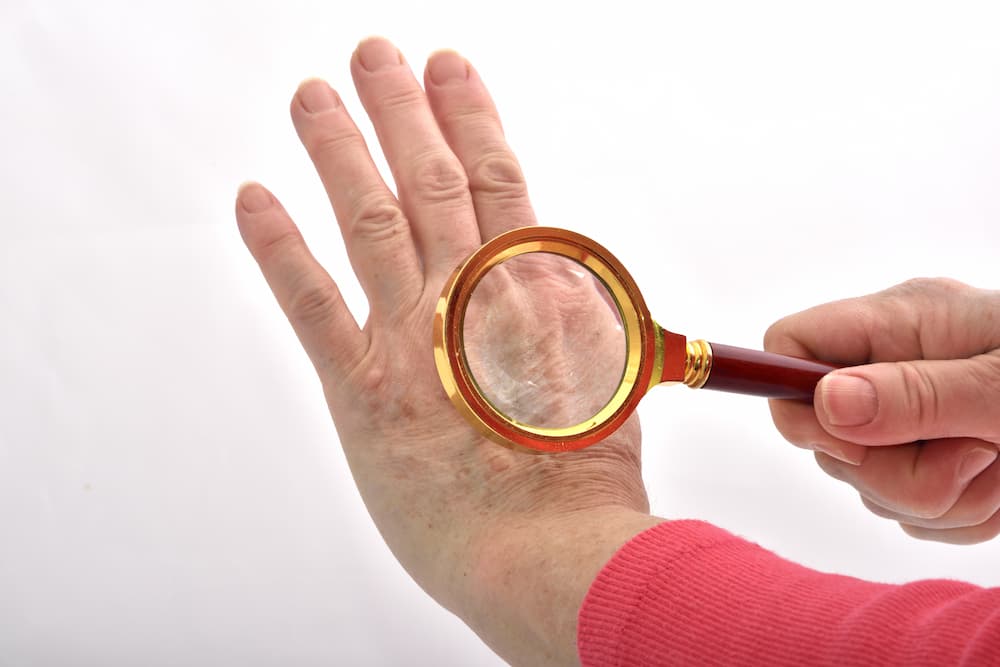Signs and Symptoms of Skin Cancer

There are many advantages of living in Houston, Texas, but the southern location and warm weather come with a drawback: an increased risk of developing skin cancer. One in three Texans will develop skin cancer in their lives. Fortunately, it is usually curable if skin cancer is caught early enough. Here is the information you need about the signs of skin cancer.
How Quickly Does Skin Cancer Appear on the Body?
There are many factors that play into the development of skin cancer, so it is impossible to say exactly how long it takes to appear. However, elements that affect the growth of cancer can give clues about the timetable.
First, most skin cancer is caused by UV radiation from the sun or tanning beds. It can take 20 years or more from the time your skin is damaged until skin cancer starts to grow. However, this is complicated by the fact that sun damage is cumulative. You may not have experienced any sunburns since you were a child, but every time your skin is exposed to too much sun, more injury is added to the original damage.
To complicate matters, there are types of skin cancer that are caused by other factors than UV exposure, such as viruses, genetic, and unknown origins. With all of these possibilities, the only thing you can be sure of is that it’s important to be alert for skin changes that could be symptoms of skin cancer.
Where is Skin Cancer Found on the Body?
It is possible to find skin cancer anywhere on the body, but some places are more likely than others. Where you are likely to spot skin cancer differs by the type of skin cancer.
Basal Cell Carcinoma
This form of skin cancer develops in cells known as basal cells, which are found in the outermost layer of the skin. It is usually found in areas that get a lot of sun exposure, including:
- face
- scalp
- ears
- neck
- shoulders
- back
- arms
- legs
Squamous Cell Carcinoma
The squamous cells are also found in the outermost layers of the skin. Cancer in these cells is the second most common variety, after basal cell carcinoma. It is usually found in areas that show sun damage, such as age spots and wrinkles. Common sites include:
- scalp
- face
- ears
- neck
- hands
It is important to know that squamous cell carcinoma can also be found in areas not exposed to the sun, especially in people with darker skin.
Melanoma
This cancer develops in melanocytes, which are the cells that create melanin, the pigment that gives the skin its color. This is the most dangerous of the three most common forms of skin cancer. Residents of Houston should be aware that Texas ranks third in the nation for most cases of malignant melanoma.
- It can be found anywhere on the body, even in places that are typically covered by clothing.
- People with darker skin are more likely to develop melanoma on their palms or the soles of their feet.
- It can show as dark lesions on the finger, toes, or mucous membranes, such as the mouth, nose, or intimate areas.
Signs of Skin Cancer
Early detection is important, so you should be alert to spot skin cancer signs. Here are some symptoms to watch out for:
- A new bump or mole on the skin
- Changes in the size, shape, or color of an existing bump or mole.
- A spot that is itchy or painful and does not heal
- A sore that bleeds or develops a crust and does not heal, or appears to heal, then returns
- A red or skin-colored shiny bump on the top of the skin
- A red, rough, or scaly spot that may itch or hurt
- A growth with a raised border and central crust or bleeding that doesn’t heal
- An unusual wart-like growth
- A growth that is taut and shiny and looks like a scar without a well-defined border
Get a Skin Cancer Diagnosis in Houston, Texas
If you have any concerns about changes in your skin, it is important to see a qualified physician because skin cancer is not something you can diagnose or discount at a glance. Dr. Michael J Streitmann MD has the expertise and knowledge to accurately assess skin problems and perform reconstructive surgery after skin cancer. Contact us today for more information or to schedule an appointment.
Image Source: stolekg / Shutterstock
